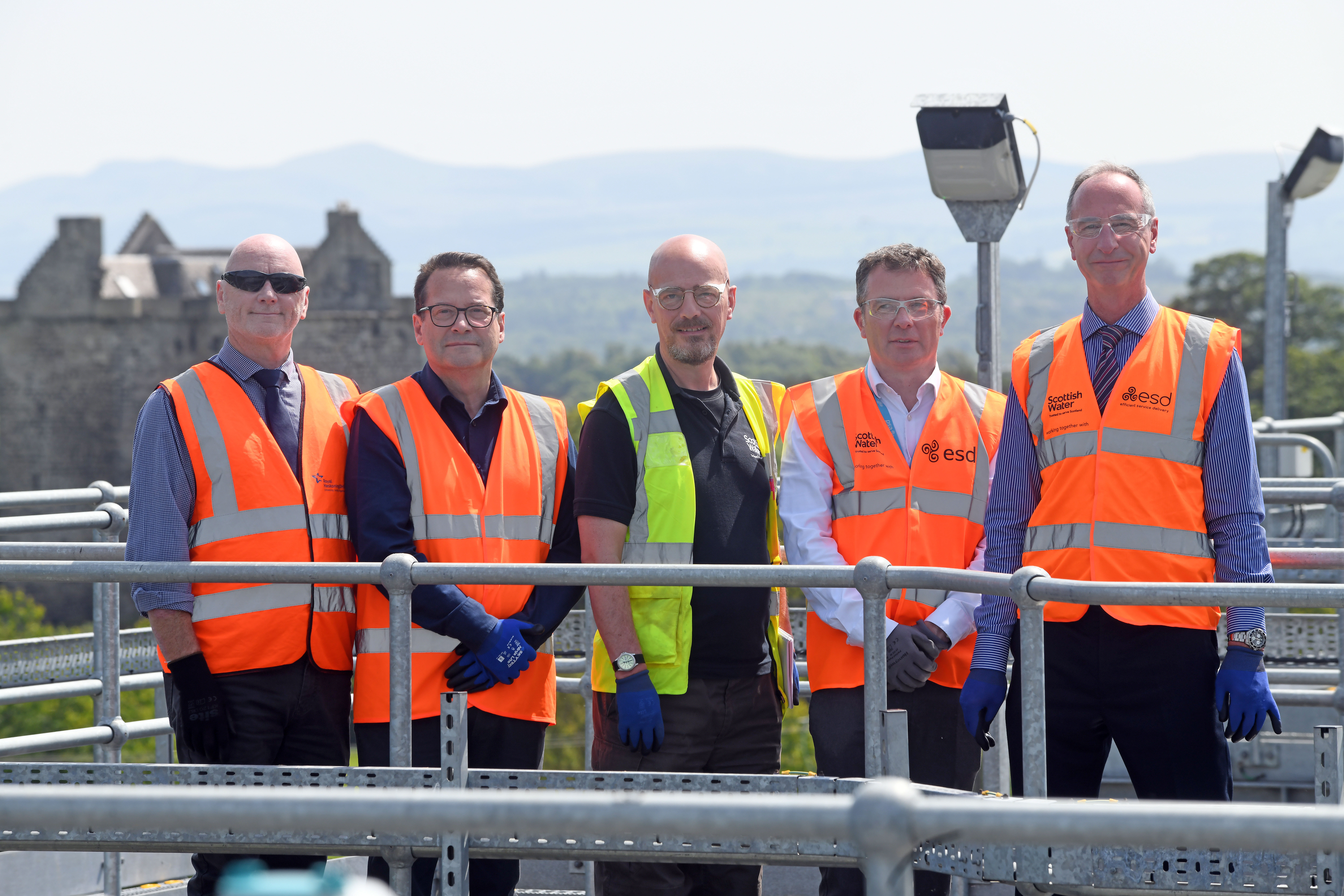The annual Major Project Award for Sustainability recognises a team that has played a critical role in a major engineering project that has had a substantial impact on society and sustainability. The Scottish Water team will receive their award at the Academy Awards Dinner in London on Tuesday 8 July.
Winchburgh Waste Water Treatment Works was delivered by Scottish Water’s delivery partners, contractor ESD, and replaces an ageing plant, which had come to the end of its operational life. The £35 million state-of-the-art treatment plant will support an expected four-fold increase in the town’s population over the coming years.
The new site uses Nereda technology, developed by Haskoning and licensed by equipment supplier EPS, which uses microorganisms that occur naturally in sewage and waste water to break down organic pollutants, to allow all stages of treatment to take place in a single tank. This means more waste water can be treated faster and with less chemicals, in a smaller site area and with a much-reduced carbon footprint – the process reduces energy usage by up to 50% compared with alternatives.
Twelve miles west of Edinburgh, Winchburgh has grown from around 2000 people in 2001 to an expected population of almost 15,500 people by 2035. This rapid growth meant that the town’s old water treatment works would be too small to deal with the sewage produced by the new homes. Scottish Water developed a plan that would meet the rising demand for waste water treatment while reducing carbon emissions as part of its commitment to investing in low carbon innovation to improve its services, support housing and economic growth, and protect Scotland’s environment.
Winchburgh is only the second site in Scotland to use the low carbon technology, following a project in Inverurie, Aberdeenshire, with the same supply chain partners. Early collaboration in the design of the Winchburgh site and learning from Inverurie enabled further significant carbon savings from using low carbon stainless steel rather than concrete for the main tanks, reduced excavation and greater use of off-site fabrication. Solar panels on the roof of the site’s control building generate a significant amount of energy to meet its needs and electric vehicle chargers have been installed to support the electrification of Scottish Water’s fleet.
The winning team members are: Andrew Dyne, Water and Maritime Contracts Manager of Winchburgh project, senior representative of Haskoning; Alan Ford, UK Technical Manager, EPS; Stephen Fraser, Operations manager, ESD; Colin Maybury, Project Manager, Scottish Water; and Jonny Tyler, Senior Commissioning Engineer, Scottish Water.
John Hamilton, CEO of Winchburgh Developments Ltd, says:
“The newly constructed works represents a significant investment for the Winchburgh local community and is a critical enabler for housebuilding and economic development as identified in the West Lothian Development Plan. The innovative treatment and construction processes collectively improve treated effluent quality; reduce energy demand and embodied carbon; and reduce impact on the local community both during and post-construction. I think this provides a clear blueprint for the future of waste water treatment.”

L-R Major Project Award winners Andrew Dyne, Haskoning, Alan Ford (EPS), Jonny Tyler (Scottish Water), Stephen Fraser (ESD) and Colin Maybury (Scottish Water)
Notes for editors
1. The Major Project Award for Sustainability is for a team that has played a critical role in a major engineering project that has had a substantial impact on society and sustainability. It recognises the contribution of a team of up to five engineers, based in the UK, who have delivered a major engineering project that has had a substantial impact on society and sustainability. The project can come from any branch of engineering. Previous winners include National Grid, for the Viking electricity interconnector that enables the UK and Denmark to share renewable energy.
2. Annual Awards Dinner 2025. This year’s Royal Academy of Engineering Awards Dinner takes place on 8 July. The event will also celebrate the winners of other awards and prizes including the Princess Royal Silver Medals and the MacRobert Award for UK engineering innovation. https://raeng.org.uk/events/2025/july/awards-dinner-2025/
3. The Royal Academy of Engineering creates and leads a community of outstanding experts and innovators to engineer better lives. As a charity and a Fellowship, we deliver public benefit from excellence in engineering and technology and convene leading businesspeople, entrepreneurs, innovators and academics across engineering and technology. As a National Academy, we provide leadership for engineering and technology, and independent, expert advice to policymakers in the UK and beyond.
For more information please contact:
Jane Sutton at the Royal Academy of Engineering; email: [email protected]
